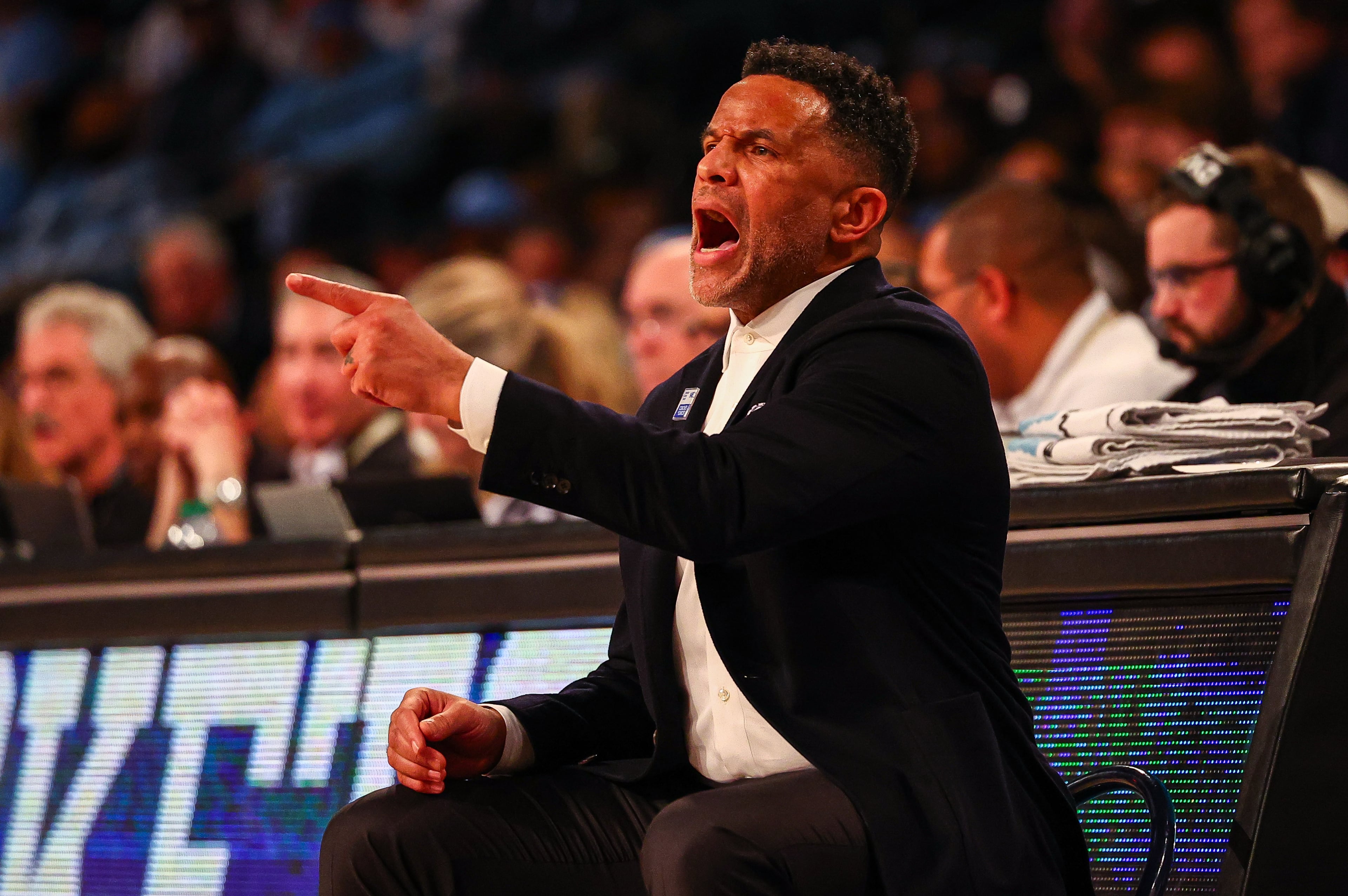ACC commissioner Jim Phillips has concerns about targeting rule
CHARLOTTE, N.C. -- The football rule that has ACC commissioner Jim Phillips’ highest attention is one that many fans have similarly been occupied with in this and past seasons – targeting.
“The health and safety, what’s a personal foul, what’s targeting, how we enforce it,” Phillips told the AJC on Tuesday at the ACC Tipoff media event. “Anytime we miss potential rules of that magnitude, it bothers me. I’d rather have our officials err on the side of really being protective of our student-athletes than letting a 50/50 play go. That has me most consumed of any issue from an officiating standpoint.”
The targeting rule – “No player shall target and make forcible contact to the head or neck area of a defenseless player or contact an opponent with the crown (top) of their helmet,” according to the NCAA rulebook – was instituted to promote player safety. It continues to be a point of emphasis from the NCAA football rules committee.
The frustrations that many coaches, players and fans have with the rule are what they perceive as an inconsistent application of the rule and also the severity of the penalty – 15 yards and disqualification for the remainder of the game, with players called for targeting in the second half of a game further sitting out the first half of the next game.
The ejection portion of the penalty was instituted to serve as an especially strong deterrent against targeting, but some find it too severe. There has been a movement for a two-tier targeting penalty, with more malicious hits drawing the ejection penalty and the rest sticking with a 15-yard infraction.
Phillips called targeting “an area of emphasis” for the conference. He said that the conference office is in communication with officials, studying game video, putting together videos that officials can watch to prepare “and we can’t relent on that. We can’t retreat on any of those facets when it comes to player safety.”
Phillips said that the consistency with which it’s called is an issue and suggested that the ACC could drive change with the NCAA to redefine the targeting rule. He recognized that officials are human and will make mistakes, and also credited them for learning from mistakes and trying to apply the rule with consistency.
“But there’s still a few (targeting violations) that have happened over the first five or six weeks that you just think we probably should have thrown a flag or something,” he said. “And if it’s not targeting, at least it’s a personal foul.”



